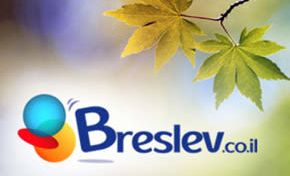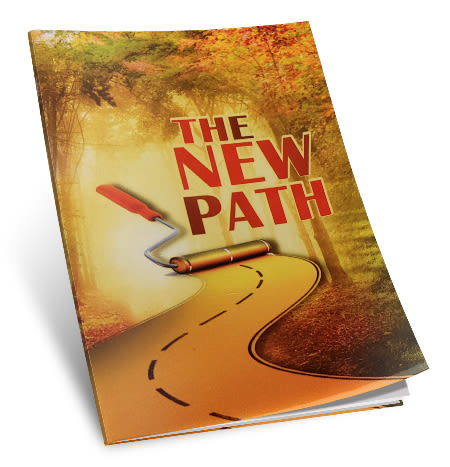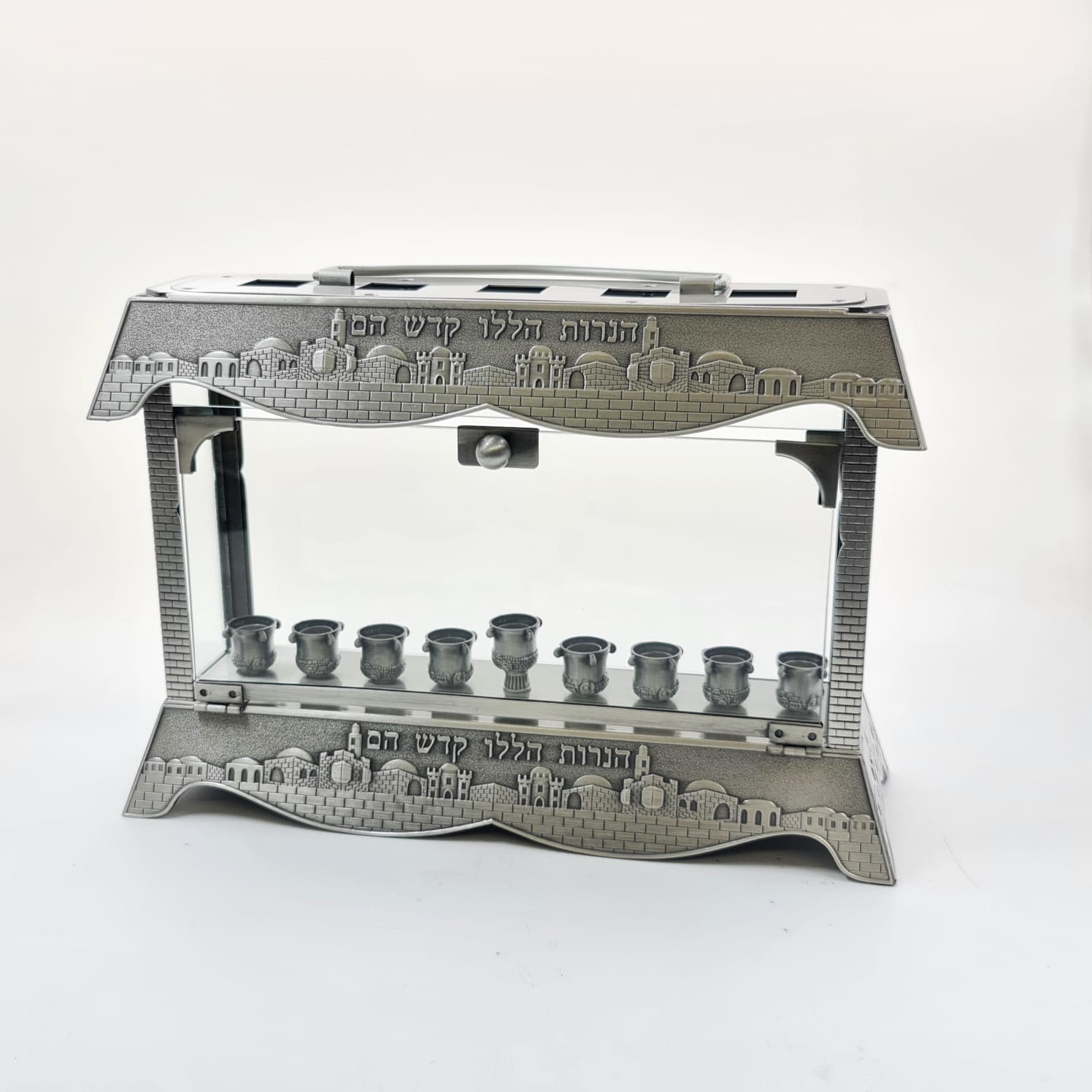
Chutzpah
It is correct that we, in our generation, have not arrived at any spiritual level or acquired any perfection...

Our generation is far from spiritual perfection. If not for chutzpah – we would have given up and folded our hands in despair at the very idea of struggling for spiritual growth. We would have “thrown in the towel…”
Dear Rabbi,
Older people complain that "in their days," children obeyed and respected their elders, while today’s generation is disrespectful. They point out that young people only think of themselves and refuse to listen to the wisdom of the older generation. They’re upset at what they perceive as our impossible demands, and claim that when they were young, children were grateful for whatever they were given.
Is this really true? Did young people in past generations really do whatever their parents asked, without coming to their own decisions?
My friends and I are incapable of blindly accepting whatever our parents tell us. Are we to blame? Today’s society is completely different. In addition, the world in general is much more materialistic today than in previous generations.
Isn’t there anything positive to say about our generation?
Michael Levy
***
The Ideal Picture
Was it really better in the past? In Ecclesiastes (Chapter 7:10) King Solomon says, “Do not say, how was it that the former days are better than these? For not out of wisdom have you asked concerning this. For you do not inquire wisely concerning this.”
The past was no better than today. If so, why do so many of us yearn for it?
It’s human nature to idealize the past. We recall its pleasant aspects while forgetting those things that were not so pleasant and long for a romanticized memory. That is one of the reasons older people tend to forget the confusion and difficulties of adolescence.
Let’s be Accurate
There are differences between the present generation and past generations. Before we discuss them, however, we have to understand that it is not true that back then everything was perfect and that today, everything is bad.
Each generation has its positive aspects. Our rabbis describe the present generation as “the generation of the heel.” From the creation of the world until its ultimate tikkun, rectification, human souls are divided into categories that parallel, in a symbolic way, the organs of the body. The unique goals and tasks of each generation are determined according to this division.
The souls of the first generations were associated with the “head” (since they had to complete their tikkun, their lifespan was so much longer), then came the souls associated with the “shoulders.” In the Mishnaic period the souls were parallel to the “chest,” and so on until the present generation, the generation of the “heel.”
Is the “head” more important than the “heel,” or "shoulders”? Every limb has its specific function and purpose. But if the “heel” does not understand that it is a heel and tries to be a "head" or "heart" instead, then it will never succeed in being a "heel." As a result, the entire body –the collective souls of the Jewish people – will be handicapped by its lack of a "heel."
The Necessity of Chutzpah
In fact, our Sages characterize the present generation as a generation of brazenness – chutzpah. “In the generation preceding the coming of the Messiah (referred to literally as the ‘heels of the Messiah’) there will be a preponderance of chutzpah.” And as we know, that is one of the most common complaints heard about today’s youth. Also, in your letter you mention that, “children obeyed and respected their elders, while the younger generation is disrespectful.”
Although past generations had less chutzpah than the present generation, it does not mean that past generations were better than today’s generation.
The Maharal (18th century Kabbalist, in his work Nitivot Olam, the Nativ of teshuvah Chapter 2) writes “Whoever has chutzpah – has the power to take action.” The present generation has more chutzpah because it has a greater need for this chutzpah than previous generations. The heel is coarser than the heart or brain, but because of its coarseness, the body can stand on it.
The “Degel Machaneh Ephraim,” in his commentary on the Chumash, Parshat Eikev, writes, “A person can serve G-d with all the negative character traits. For example, we know that ‘in the generation preceding the coming of the Messiah (referred to literally as the ‘heels of the Messiah’) there will be a preponderance of chutzpah.’ However, the Talmud in Tractate Sanhedrin (105) says: ‘Chutzpah helps even in regards to Heaven.’ This is because the one who looks at himself as being nothing (meaning that he is meek and humble, and lacks chutzpah) will think that his prayers have no value. Chutzpah therefore, is beneficial in that it will enable him to value his prayers, and believe that they make a big impression in Heaven, thereby causing him to strengthen himself to pray and serve G-d.”
So we see that chutzpah is essential and it is specifically because of this chutzpah that we are able to take part in rectifying the world and the souls of Israel.
It is true that our generation is far from spiritual perfection. If it were not for chutzpah, however, we would have despaired at the thought of continuing our spiritual struggles. We would have been too ashamed to pray and correct our ways.
Holy Chutzpah
But we have chutzpah – a holy and resolute chutzpah! Through this chutzpah we can to pray to G-d and seek His mercies and realize that, despite our numerous blemishes, there is a great, eternal and true value to our petty deeds.
We need chutzpah to strengthen ourselves and stand up to the flood of materialism and erroneous beliefs that threaten to destroy us. We need chutzpah to say, “The good shall prevail! Although we are so weak and so few, we have the truth, and our faith is the true faith!”
Chutzpah does not have to be negative. If we learn to learn it properly, it becomes “good chutzpah” – and even “holy chutzpah.
Building Belief
Yes, a rebellious spirit really has come into the world. You yourself wrote, “My friends and I are incapable of blindly accepting whatever our parents tell us." This rebelliousness is not entirely negative. A person can rebel against G-d and reject His Torah, or he can rebel against the emptiness of purely physical pursuits and atheism.
Today’s generation has a unique desire to investigate and ask questions, and not to accept anything, including religious faith, at face value. The intellectual independence is a tool. It is neither good nor evil – it depends on how it is used. Investigation and questioning can build faith, emunah; stubborn inner examination can strengthen and empower emunah.
If we reject questions and attribute them to the "lessening of the generations” we will create a generation that rebels against all that is holy. The present generation’s chutzpah can spur them to pursue truth and both strengthen and deepen their emunah, freeing them from the shackles of serving G-d out of habit. These "chutzpadik" soldiers have the power to win the final spiritual battle that is presently raging.
Everything stands on the "heel" and the "heel’s" essence is emunah. The Talmud says (Makos 24): “The prophet Chabbakuk explained that the foundation of the six hundred and thirteen mitzvos rests on emunah, as it is written, ‘The righteous man will live with his emunah.’” Our rabbis explain that in the end of days, the main test will be in the realm of emunah. In such a weak generation, we need the strength of chutzpah to maintain our emunah.
All the previous generations stand on the feet, on the “generation of the heel,” and the "generation of the heel" stands of emunah.
The present generation is not worse than previous generations – it is different. If we understand that difference and respect it, then today’s youth will use its heel to support all the generations!
(From “Clarifications” by Rabbi Erez Moshe Doron, “Levhadvarim”)










Tell us what you think!
Thank you for your comment!
It will be published after approval by the Editor.